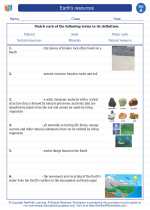Gases
Gases are one of the states of matter, along with solids and liquids. They are made up of particles that are in constant, random motion. Gases have the ability to expand to fill the space available to them, and they have very low density compared to solids and liquids. Here are some key concepts to understand about gases:
Properties of Gases
- Expansion: Gases have the ability to expand to fill the container they are in.
- Compressibility: Gases can be easily compressed into a smaller volume.
- Density: Gases have low density compared to solids and liquids.
- Diffusion: Gases have the ability to mix and spread out evenly with other gases.
- Pressure: The pressure exerted by a gas is the result of the constant motion of its particles.
Behavior of Gases
Gases follow certain laws that describe their behavior. Some of the key laws include:
- Boyle's Law: Describes the inverse relationship between the pressure and volume of a gas, when the temperature is held constant.
- Charles's Law: Describes the direct relationship between the volume and temperature of a gas, when the pressure is held constant.
- Gay-Lussac's Law: Describes the direct relationship between the pressure and temperature of a gas, when the volume is held constant.
- Combined Gas Law: Combines Boyle's, Charles's, and Gay-Lussac's laws into one equation that relates the pressure, volume, and temperature of a gas.
Gas Laws Equations
Here are the equations that represent the gas laws:
Boyle's Law: P1V1 = P2V2
Charles's Law: V1/T1 = V2/T2
Gay-Lussac's Law: P1/T1 = P2/T2
Combined Gas Law: P1V1/T1 = P2V2/T2
Real-Life Applications
The behavior of gases and the gas laws have numerous real-life applications, such as in weather systems, scuba diving, and the operation of internal combustion engines.
Study Guide
When studying gases, it's important to understand the properties of gases, the behavior of gases as described by the gas laws, and their applications in the real world. Be sure to practice solving problems using the gas laws equations and understand how changes in pressure, volume, and temperature affect the behavior of gases.
Remember to review the key concepts, laws, and equations related to gases to solidify your understanding of this topic.
Good luck with your studies!
[Gases] Related Worksheets and Study Guides:
.◂Science Worksheets and Study Guides First Grade. Earth's resources

 Worksheet/Answer key
Worksheet/Answer key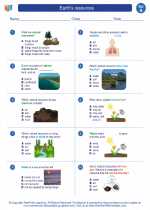
 Worksheet/Answer key
Worksheet/Answer key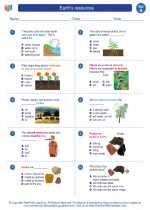
 Worksheet/Answer key
Worksheet/Answer key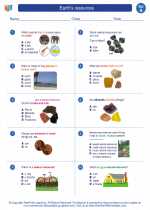
 Vocabulary/Answer key
Vocabulary/Answer key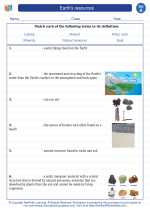
 Vocabulary/Answer key
Vocabulary/Answer key